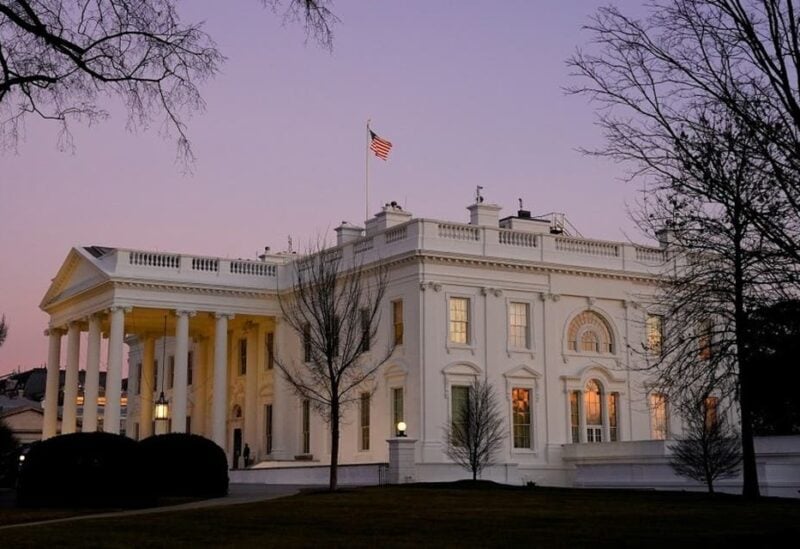
The White House is seen at sunset on US President Joe Biden's first day in office, Jan. 20, 2021. (Reuters)
The White House said on Wednesday that the administration of President Joe Biden will make $13.5 billion available to help low-income American households reduce their heating expenditures this winter.
According to a release, the Low-Income Home Energy Assistance Program (LIHEAP) of the U.S. Department of Health and Human Services will receive $4.5 billion in financing as part of the program.
The U.S. Energy Information Administration (EIA) predicted in its winter fuels outlook published in October that Americans will pay up to 28% more to heat their homes this winter than they did last winter as a result of rising fuel prices and colder weather.
The new funding will help Americans with heating costs and unpaid utility bills and repairs of home energy appliances that will help lower their energy costs, the White House said.
Separately, the U.S. Department of Energy will allocate $9 billion in funding from the Inflation Reduction Act to support up to 1.6 million households in upgrading their homes to lower energy bills.
About 90% of the roughly 130 million U.S. households rely on natural gas or electricity for heat. The rest use either heating oil, propane or wood for heat.
EIA forecast the average household will spend about $931 for gas heat this winter and about $1,359 for electric heat. That is a 28% increase for gas and a 10% increase for electric versus last year.
Homes using heating oil will spend about $2,354 for heat this winter, up 27% from last year, while propane users will see their costs rise 5% to $1,668, according to EIA’s outlook.
Despite the big increase in cost, gas will remain the nation’s cheapest source of heat.
According to projections from the National Energy Assistance Directors Association (NEADA) in October, households in the United States are already struggling to pay their electric and gas bills, with nearly one in six of them having arrears.
U.S. families were reportedly $16.1 billion in arrears on their utility payments, according to NEADA, which speaks for the state LIHEAP directors.
According to NEADA Executive Director Mark Wolfe, “the surge in residential energy expenses this winter will put millions of lower income households at risk of falling behind on their energy payments and being forced to choose between paying for food, medicine, and rent.”